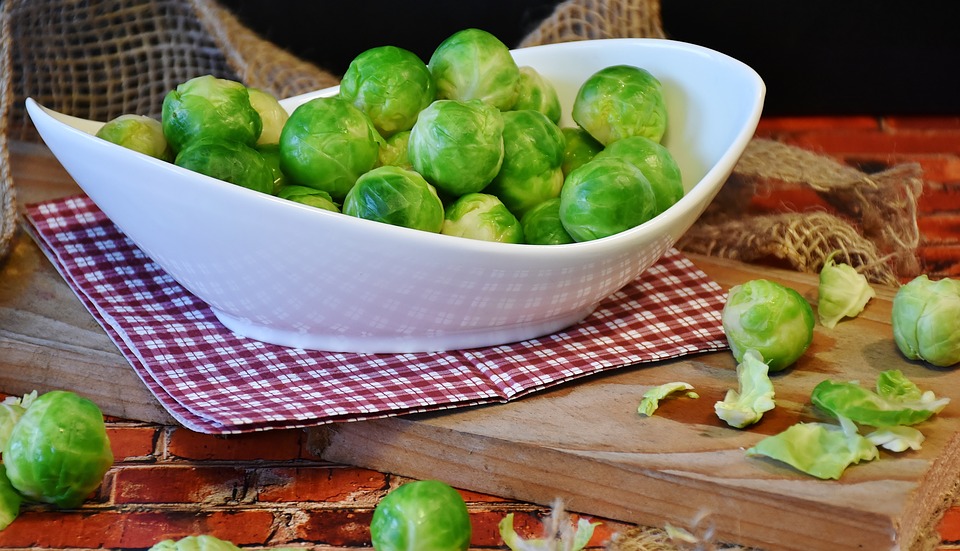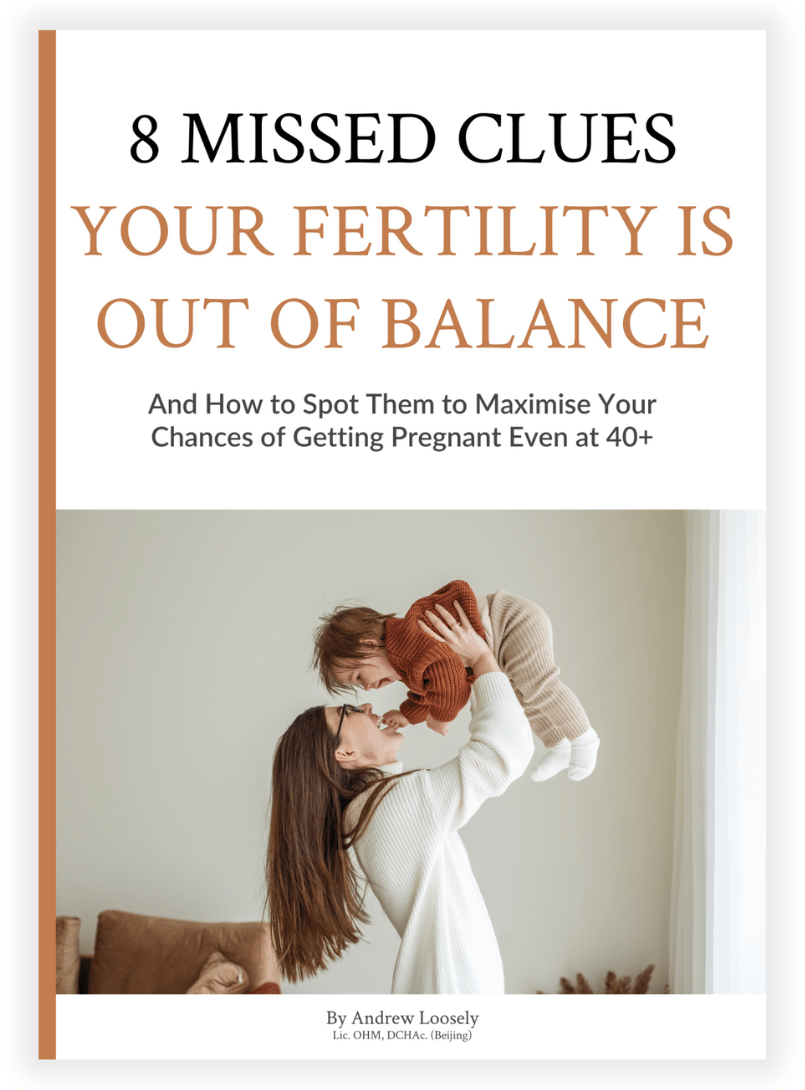Do brussel sprouts make more babies?

Brussel sprouts generally get a lot of stick, as one of the most disliked vegetables – yet they are touted to be amazing for fertility.
There are articles all over the internet stating that the increase in conception rates between November and February could be related to Brussel Sprouts – because “they are bursting with Folate”.
But is that really true?
When I reviewed the composition of Brussel sprouts, I found that they contain around 15% Folate.
That sounds quite good until you compare it to Beetroot, which has 37% Folate content!
Suddenly Brussel sprouts aren’t that great as a source of folate compared to beetroot, and I wouldn’t personally describe them as “bursting with folate”.
So, does that mean that Brussels aren’t a good food for fertility?
Absolutely not.
Brussel sprouts are still a good and healthy food that can support ceartain aspects of fertility health.
They’re great at reducing excessive estrogen levels, which is helpful for people who have too much estrogen, but also helpful for people who have an accumulation of waste in their body that often relates to the pattern of imbalance in the body called “Dampness” in Chinese medicine.
They’re also a great source of Vitamin C, that we need more of in winter when they’re in season, along with having high levels of Vitamin K that can help regulate blood flow.
Interestingly, Chinese medicine has talked about higher baby conception rates in winter for a very long time – and we recognise that this is not related to diet, but to the organ system that corresponds to the winter season.
Winter corresponds to the ‘Kidney organ system’ in Chinese medicine understanding, and the kidneys control and support the reproductive system – think adrenal glands and hormone production such as Progesterone relating to fertility and pregnancy.
When we enter the ‘kidney season’ our reproductive system is more strongly supported (if we live in balance with the season and our unique health pattern and needs), and conception rates increase. If we further support this season with ‘kidney strengthening’ foods, certain herbs (if needed, and only prescribed by a practitioner), and the right lifestyle we can optimise conception at this time of year.
Please note: This applies only to natural conception, and not to IVF treatment where conception rates are often lower in the winter. The reduction of IVF success rates during winter is related to the exhaustion that the kidney organ system experiences from the stimulation medication that is used in an egg retrieval cycle. I therefore typically recommend that people do not carry out stimulated IVF cycles in the winter months of Nov-Jan, but instead focus on creating a solid health foundation for a stimulation cycle from Spring onwards. During the winter months it is absolutely fine to try to conceive naturally whilst preparing for a possible IVF cycle. This approach has produced great results for my patients over the past 25+ years.
100g of Brussel Sprouts contain:
147% Vitamin K, 142% Vitamin C, 25% Vitamin A, 17% Vitamin B6, 17% Iron, 15% Folate, and 15% Manganese.
I use Brussel Sprouts to treat the following Chinese medicine patterns of health imbalance:
- Yang deficiency (lack of warmth in the body)
- Qi Stagnation (lack of proper circulation)
- Dampness (accumulation of fluids and waste in the body)
Not sure whether you have any of these, or other, patterns of health imbalance?
YANG DEFICIENCY
Yang Deficiency is the Chinese Fertility Medicine term used to describe a lack of activity, warmth, or metabolism within your body.
It basically indicates an under-activity of the body – often related to the adrenal function, or the Hypothalamic-Pituitary-Adrenal axis. This axis regulates hormone production and release, and is also involved in the regulation and production of energy and warmth.
Yang Deficiency often manifests as Thyroid issues, particularly Hypothyroidism and Hashimoto’s Thyroiditis as both of these are caused by an under-active metabolism.
Click here to read more about Yang Deficiency:
QI STAGNATION:
Qi (pronounced chee) is the Chinese Fertility Medicine word used to describe energy, life force, or vitality inside and outside the body.
Qi must always flow efficiently through the body to properly support the thousands of functions required of the organs and systems every day.
If the flow of Qi slows down it is regarded as being a Qi Stagnation pattern.
This typically results in a variety of symptoms that can lead to stress, mood changes, hormonal imbalance, and other functional symptoms reflecting a lack of circulation in the body.
All of these have the ability to affect your fertility health as the regulation and ‘switching’ of hormones, fluids, energy, blood require a smooth and constant flow of energy to work properly.
Click here to read more about Qi Stagnation:
DAMPNESS:
Dampness is the word used in Chinese Fertility Medicine to describe an overabundance of negative types of fluids that have accumulated in the body.
This includes: mucus, phlegm, or water accumulation (edema) that build up over time in different areas of the body.
A variety of fertility issues can arise from having too much Dampness including: immune disorders, fluid retention, circulatory issues, bacterial and fungal overgrowth, and other inflammatory diseases.
Reducing dampness can take some time, but the physical effects you receive will be worth it!
Click here to read more about Dampness:
Key nutrients in Brussel Sprouts are:
Vitamin A: Is necessary for the growth and repair of many body cells including bones, teeth, collagen and cartilage. It’s also involved in cell differentiation where cells become specific types of cells such as a liver cell or a blood cell. This is vital for the development of your healthy baby. Supplementation does not offer balanced forms of Vitamin A.
Vitamin B1: Thiamine is involved in the production of energy through the breakdown of sugars and carbohydrates. This is important for cellular health, which may also influence the health and energy of sperm and egg cells. It’s also important for energy support during pregnancy.
Vitamin B2: Research shows that Riboflavin can act as an antioxidant, which helps to combat against harmful free radicals. Free radicals are known to negatively impact sperm and egg health, and so antioxidants are a vital part of the human diet.
Vitamin B3: Niacin as with most other B vitamins is involved in energy production within the mitochondria of your cells (the powerhouse of the cell). Pregnancy requires good levels of niacin, as does breastfeeding.
Vitamin B5: Pantothenic acid is involved in the production of hormones, along with cholesterol, and so is vital for maintaining fertility health.
Vitamin B6: Pyridoxine is involved in breaking many types of chemical bonds and is a component of many enzymes – which are involved in breaking down foods and substances, and also regulating steroid hormones.
Vitamin B9: Folate is an important nutrient for general and fertility health. It’s involved in the creation of DNA as well as the building of proteins, and many other important functions including the healthy development of your baby’s’ spinal cord. During pregnancy folate also supports the growth of the placenta and helps to prevent several types of birth defects, especially those of the brain and spine.
Vitamin C: For fertility health Vitamin C is important in the process of absorption and also in its ability to support the luteal phase of the menstrual cycle.
Vitamin K: Vitamin K is an essential nutrient necessary for responding to injuries as it regulates normal blood clotting. Vitamin K can be particularly useful if you suffer from heavy and/or painful periods as it can help slow down the blood flow and reduce cramping.
Iron: Is a mineral that the body uses to carry oxygen in the blood and plays a key role in strengthening the immune system and helps regulate body temperature.
Phosphorus: Is an element that plays an important role in how the body uses carbohydrates and fats. It is also needed for the body to make protein for the growth, maintenance, and repair of cells and tissues. It is essential in our diet and particularly in children when growth and development occurs.
Manganese: is a naturally occurring mineral which aids in the formation of connective tissue, bones, blood-clotting factors, and sex hormones.
Calcium: Calcium is needed to build and maintain strong bones, support heart health, and for optimal function of the muscles and nerves. It is also required alongside Vitamin D to aid in its use throughout the body.
Copper: Copper is essential for overall health and is involved in many processes in the body. It cannot be produced by the body and must therefore be consumed through food. Copper helps maintain healthy bones, blood vessels, nerves, and immune function, and it contributes to iron absorption.
Zinc: Zinc is essential for the repair and function of DNA, which affects sperm and egg quality. It’s also essential for the rapid growth of cells and the building of major parts of cells during a pregnancy. The development and enzyme activity that takes place during pregnancy is supported by zinc, which means that this is one of the most important nutrients for babies and mothers.
Selenium: is one component of antioxidant enzymes and is also used by the body to help support thyroid health, particularly conversion of thyroid hormones from one to the other. This can help support your thyroid health, which is fundamental for fertility health and pregnancy.
Season available: Autumn- Winter
How it’s typically cooked: Steamed, roasted, grilled or stir-fried, cutting and X at the bottom of the stems helps them cook more evenly.
Cautions:
Brussel sprouts contain goitrogens, which may cause swelling of the thyroid gland and should be avoided raw in individuals with thyroid dysfunction. Always eat them cooked if you have a thyroid issue.
Disclaimer: https://naturalfertilityexpert.com/disclaimer/
Need more help?

Free Guide
8 MISSED CLUES YOUR FERTILITY IS OUT OF BALANCE – even if you’re over 40
Discover What’s Stopping You Having Your Baby
8 MISSED CLUES YOUR FERTILITY IS OUT OF BALANCE – even if you’re over 40
If you’re 40 or over and pregnancy isn’t happening for you naturally, or with IVF, then this guide will help you discover why being 40+ isn’t a barrier to having a baby – as long as you identify the root cause of your fertility issues and then bring your body back into balance.